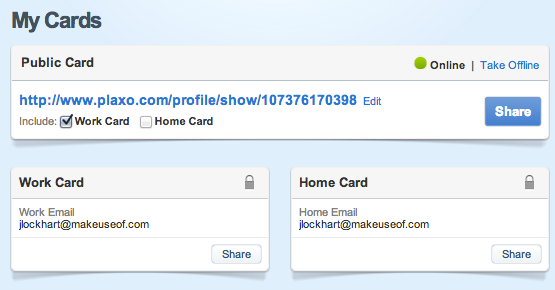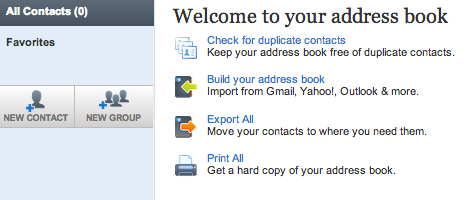LinkedIn has been the goto social network for finding a job as of late, and honestly, why shouldn't it be? It has a great deal of wonderful resources and tools aimed at job-seekers and employers alike to help them both on their journeys, and is a great tool for job-finding, especially if you can make your profile irresistible. However, LinkedIn isn't the only way you can find a job.
There are other social networks out there perfect for helping you finding the perfect job. Some of them are well-hidden, and some are the usual suspects. The point is that you don't have to limit yourself, and yes, there are plenty of places out there willing to accept your resumé, especially if you style it right.
Below are five other social networks you can use that could very well help you land that dream job. Take a look at them, use them to the best of your ability, and bring home the bacon.
Pinterest isn't just for posting pictures of disgustingly melted crayons and overly-expensive clothing. In fact, it's a great way for some people to display their portfolio and expertise, too.
Personally, I've found that Pinterest ideally works for freelancers and prospective job-seekers who are in some sort of visual field. Most importantly, such users can pin their own work from their portfolio sites onto the boards, which in turn link back to said site. Photographs, images, art, videos — all of these can be properly pinned to introduce yourself in a friendly, social manner.
Don't think you should limit your Pinterest usage to showing your own work, though. For instance, designers and stylists can easily develop various boards that show their taste by pinning images, clothing, and other things that they like. This can help potential clients and employers get a feel for the individual's taste.
We recently published an entire article on the benefits of using Facebook when it comes to finding a job. I will highlight the important parts from that article, but do check it out for more information on how you can use Facebook to find a job.
There are the obvious things: clean up your profile, post a status asking your friends about jobs, participate in discussions on workplace Facebook Pages; you know them, already. However, the two key Facebook features I would like to point out are the Facebook Marketplace and the Social Jobs Partnership [Broken URL Removed] app.
Powered by Oodle, the Marketplace functions a bit like any other classified ads site — there's even a specialized jobs section. From my experience, I thought it was rather useful. For instance, you can search for positions within your area and up to however many miles you are willing to commute, and even better, you can see a limited portion of the job-poster's Facebook profile or Page. This adds an extra level of accountability that other sites do not have.
As for the Social Jobs app, it does virtually the same thing as the jobs section of the marketplace, but it's a bit more optimized for more intensive job-seeking. For instance, you can browse specific career categories and insert certain keywords which pull data from job resources such as Monster, Branchout, Jobvite, and more.
Plaxo
Plaxo [broken link removed] solves the problem that most other social media sites haven't been able to: people are always changing their contact info. You know how it is.
One day you think you have this awesome email address, and then the next, you realize that choosing xMYLITTLEPONY3000x as your username probably wasn't the best decision you've ever made.
The site is a bit like a virtual Rolodex in that you can keep all of your contacts (if they choose to join the site) in one place. However, whenever they update their information, it gets updated on your contact list, too. This means you never have to deal with outdated email addresses, phone numbers, or websites, but it also means that you have to rely on people to update Plaxo.
How can this help you find a job? Well, it mainly has to do with networking, truth be told. By building up your network, you have the potential to connect with many people throughout the course of your career. Sure, you may have met John Doe at an event two years ago and received his business card, but is he working for the same company now? With Plaxo, his contact information can change as his life changes.
Furthermore, Plaxo integrates with SimplyHired, an already existing job board that provides access to hundreds of job openings. By building your Plaxo profile, you simultaneously build your profile to use with SimplyHired — pretty nifty.
Like Facebook, we've covered Twitter in detail when it comes to your job search. Not to be too repetitive, I thought it would be best to go over some of the high points.
Obviously, you should make sure that your Twitter account represents yourself in the most professional manner possible. Of course, this really only pertains to what exactly your profession is. Some fields are a bit more light-hearted than others while some are a little more tight-collared. Just be careful with what you Tweet.
In the above article, several Twitter accounts are listed which promote useful job openings. These are perfect to follow:
Furthermore, hashtags are important when it comes to preparing for your career. By keeping an eye on topics that pertain to your field, you can stay in the know when it comes to meeting employers. There's also the chance of actually finding jobs through them. Here's a list of hashtags worth keeping an eye on.
- #hiring
- #hfchat
- #HR
- #jobhuntchat
- #jobopening
- #jobposting
- #jobsearch
- #joblisting
- #tweetmyjobs
- #employment
- #recruiting
Jobster
Admittedly, Jobster seems to be relatively unheard of, but it packs a few serious tools that can help you rise above the competition. Right off the bat, you should understand that Jobster is indeed a social network, and you can actually import your data from LinkedIn to set up a profile.
Jobster offers a variety of different ways to showcase who you are to potential employers, but admittedly, as of late, LinkedIn seems to offer nearly the same set of resources as this site. Skill tagging, site links, and network building are all the basic elements of LinkedIn, and are all found here on Jobster.
However, Jobster offers a few interesting options LinkedIn doesn't. For instance, you can actually upload a video resumé to the site itself, and there's a rather clear-cut method for job searching and job posting. The site is very straight-forward — no hoops to jump through, really. Based on my experience, it felt a great deal like using LinkedIn, but at the same time, a little watered-down.
I still would recommend considering Jobster, but I wouldn't call it a necessity. Regardless, it's just another tool to put your name out there.
Conclusion
That's about it for our social networks for finding jobs, dear readers. Hopefully, this article helped enhance your journey. Getting your name out there in any possible manner is always a good idea, but don't leave LinkedIn just yet. In fact, you should use our free LinkedIn guide to make even better use of it.
Of course, we always love your feedback. Have you made use of these social networks when trying to find a job? What other social networks have you used? Would you not use these for any reason? Share your thoughts below!
Image Credits: Handsome businessman Via Shutterstock









